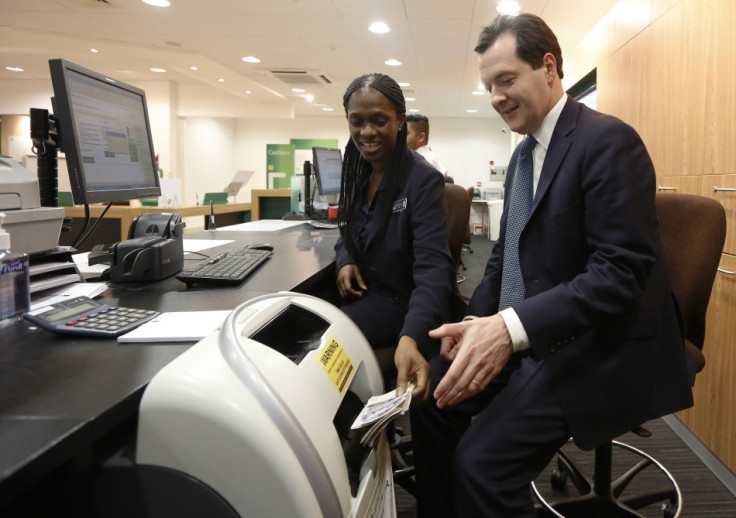George Osborne: Scottish Independence Means Families £2,000 Poorer

Chancellor George Osborne claimed Scottish families would be significantly worse off if the country split from Britain, as the Treasury chief weighs in to the independence debate ahead of Scotland's referendum in 2014.
Osborne was delivering a keynote speech at an Aberdeen oil and gas industry conference to coincide with the launch of a new Treasury report, called Scotland Analysis: Macroeconomic and Fiscal Performance.
The 140-page report is the fifth in a series published by the UK government analysing Scotland's place within Britain and the scenarios that might unfold if it left.
It says Scottish GDP would be 4% higher in 30 years if the country remains within the UK because of the lucrative trading relationship between British nations as well as the anticipated growth in economic activity.
"Put it another way: separate from the UK, create an international border, and the loss to every Scottish household will be £2,000," said Osborne in his speech.
Obsorne said that Scotland could go it alone but those "who advocate Scottish independence" must "offer a little less hat and a bit more cattle", playing on the Texan phrase "all hat and no cattle" in his speech.
Further aspects of the Treasury's report emphasised the convergence of the Scottish economy and the rest of the UK in a number of areas and how it would be upset by independence.
According to the report, Scotland exported £36bn worth of goods and services to the rest of the UK economy in 2011 and imported £46bn from the rest in the same year. That accounted for nearly 30% and 40% of Scottish GDP respectfully.
The open border that helps facilitate such trade between Scotland and the rest of the UK was also mentioned, with 30,000 people recorded as living and working on different sides of it in 2011.
If Scotland and the UK became two separate countries like Canada and the United States with a regulated border, the report referenced what it called the findings of a "widely cited study" by US-based academics that concludes the border between US and Canada reduces trade by 44%.
Sturgeon Hits Back
Before Osborne gave his speech, Nicola Sturgeon, Scottish deputy first minister, rubbished the chancellor's claim that Scotland would lose 4% of GDP over 30 years if it won independence.
The colourful high-flying member of the SNP made her opinions known to Radio Scotland's Good Morning Scotland programme, as her party unveiled major legislation for the year ahead.
"George Osborne said yesterday that incomes would be hit by 4% over 30 years if Scotland voted yes to independence," she said.
"The reality for people in Scotland is that incomes under the first two years when George Obsorne was chancellor, real incomes have fallen by 7%."
North Sea Oil and Gas
Speaking directly to the oil and gas industry audience, Osborne linked the development of North Sea fields over the past decades with the Union that has linked Scotland and the rest of Britain for more than 300 years.
He cited Andrew Marr's History of Modern Britain book directly in his speech where he echoed a comparison Marr made between "the feats of North Sea civil engineering with the building of railways by the Victorians".
The chancellor, who has an acute sense of history having studied the subject at Oxford University, went on to make the case for Scotland staying in the Union, claiming collaboration on North Sea oil represented a distinguished chapter in the history of British industry.
"Britain led the way in finding new sources of energy - coal in the 18<sup>th and 19<sup>th century, oil in the 20<sup>th century, and renewables at the turn of the 21<sup>st century," he said.
© Copyright IBTimes 2025. All rights reserved.






















